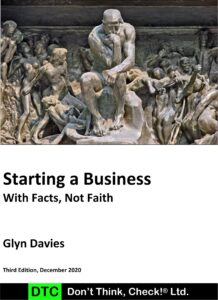I had in the recent past found many references to Viktor Frankl (1905-1997) (Wikipedia), most notably his view that “everything can be taken from a man but one thing: the last of the human freedoms—to choose one’s attitude in any given set of circumstances, to choose one’s own way.” (Frankl, 1992, p.75).
The quote is taken from Frankl’s book, Man’s Search for Meaning an introduction to logotherapy. The book is a personal account, an attempt at an objective summary of 3 years of life in concentration camps such as Auschwitz, Dachau, and others, from the perspective of a prisoner who was also psychiatrist. This summary then is a personal account of my reaction to my first, and certainly not my last reading.
The book is in two parts. The first is a reflection on concentration camp life; the second is an introduction to logotherapy, Frankl’s therapy to treat people suffering from neuroses. This summary is concerned with the first part of the book.
The book is not concerned with “the great horrors” (Frankl, 1992, p.17) which have been described many times by many people, it is instead concerned with the anonymous masses of people who died, who suffered and died, who suffered and survived, as well as those who inflicted the suffering and death.
It is hard to imagine let alone comprehend the life of a concentration camp prisoner, of living in unwashed clothes, of sleeping 9 to a bed (wooden boards) sharing 2 blankets in unheated huts, of trudging in grossly inadequate clothingkilometres in the predawn through snow and slush in ill-fitting shoes with no socks and then working all day in the same conditions. Repeat everyday. Of being continuously undernourished. Of facing the stark reality of brutality, depravation, and death everyday with no end in sight. Fully aware that your family and friends have likely been exterminated in the gas ovens, and that your irrelevant existence and identity had been reduced to a number tattooed on your skin. And that the “odds of surviving the camp were no more than one in twenty-eight, as can easily be verified by exact statistics.” (Frankl, 1992, p.118).
It would be easy for most of us to loose hope under such conditions, having nothing left to live for and to give up, as it “was an unrelenting struggle for daily bread and for life itself, for one’s own sake or for that of a good friend.” (Frankl, 1992, p.18). Conditions were so bad that Frankl decided against rousing a fellow prisoner one night who was thrashing about in a horrible nightmare, withdrawing his hand that was about to wake him, realising at the last moment that “no dream, no matter how horrible, could be as bad as the reality of the camp which surrounded us, and to which I was about to recall him.” (Frankl, 1992, p.41).
But through his writing, bitterness if it exists is not evident, especially considering the provocations endured. All things considered, the book is probably as objective a reflection as anyone who had suffered the experience could hope to make. In spite of his sufferings, and Frankl mentions suffering a great deal, he is remarkably philosophical; he likes to quote Nietzsche: “That which does not kill me, makes me stronger,” (Frankl, 1992, p.89) but he does not advocate avoidable suffering, only that it is possible to find meaning in spite of the suffering; Nietzsche again: “He who has a why to live can bear with almost any how.” (Frankl, 1992, p.9).
For the layperson it is easy to imagine classic lay predictions of responses to the conditions Frankl endured such as give up and die, degenerate into an undifferentiated primal and feral mob, or survive and become bitter. Instead people became more different. We cannot predict the behaviours of people; their roles, camp guard or capos (privileged and often brutal prisoners who worked in camp administrative positions) did not provide predictive certainty; “we watched and witnessed some of our comrades behave like swine while others behaved like saints. Man has both potentialities within himself; which one is actualized depends on decisions but not on conditions.” (Frankl, 1992, p.135). Yet in spite of his sufferings, Frankl also said that “No man should judge unless he asks himself in absolute honesty whether in a similar situation he might not have done the same.” (Frankl, 1992, p.58).
Few of us have or will ever face the suffering of Frankl and his fellow prisoners. For me, Frankl’s message is that perhaps we should not be so quick to judge others, and that regardless of our situation, we have the choice of how we will behave and the attitude we will adopt. We alone decide whether we will act like swine or saints, and whether or not we will find meaning in our journey and in oursuffering.
I was humbled by Frankl’s book, and I recommend it. I have also decided that I have nothing to complain about.
“Live as if you were living for the second time and had acted as wrongly the first time as you are about to act now!” (Frankl, 1992, p.114)
References
Frankl, V. E. (1992). Man’s search for meaning; an introduction to logotherapy. Boston,: Beacon Press.
Wikipedia



